Say Goodbye To Bloat: 17 Gut-Healing Foods To Transform Your Health

The gut microbiome has seen a surge in popularity in recent years, and for good reason. Many holistic medical professionals are now talking about the role of the gut microbiome in preventing diseases and increasing longevity. The gut microbiome is a bustling ecosystem within your digestive system that influences digestion, immune function and even impacts mood and energy levels. To nurture this complex community of microorganisms, what you eat is paramount.
Here are some of the best food to eat in order to support your gut microbiome.
Yogurt
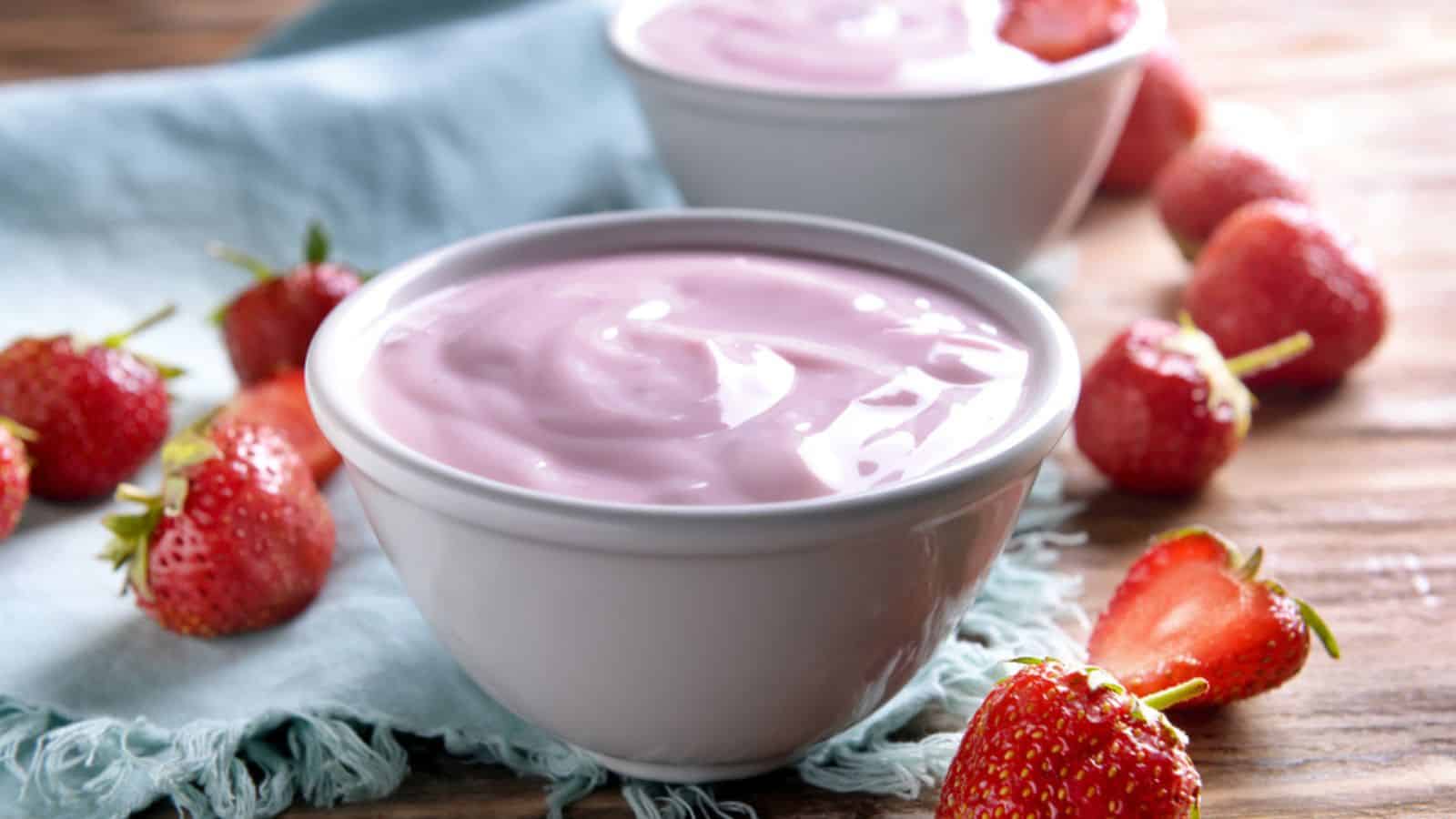
Yogurt is a well-known food for gut health. This tasty food is rich in probiotics and helps maintain a healthy balance in your gut microbiome. When choosing yogurt, make sure that it contains live and active cultures and low in sugar to maximize the benefits from this food.
Regular consumption of yogurt has been linked to improved digestion, gastrointestinal health, and enhanced immune function. Yogurt is creamy and versatile and is easy to add to your daily diet. Many people enjoy this gut food on its own, blended into smoothies, or as a base for sauces and dressings.
Kefir

Kefir is a fermented milk drink that is quickly gaining popularity in the health world because of the robust probiotics available in this drink. It has a tangy flavor, and homemade kefir sometimes has a refreshing fizz that many love.
Kefir is made by adding kefir grains to unpasteurized or pasteurized milk, which initiates the fermentation process. After 24 hours you can harvest your kefir drink, which is higher in probiotics than traditional yogurt, making it even more effective at improving gut health. Not only can kefir help with digestion, it is also suitable for people with lactose intolerance as the probiotics digest the lactase naturally found in milk. It also contains several key nutrients, including protein, calcium, and B vitamins.
Sauerkraut
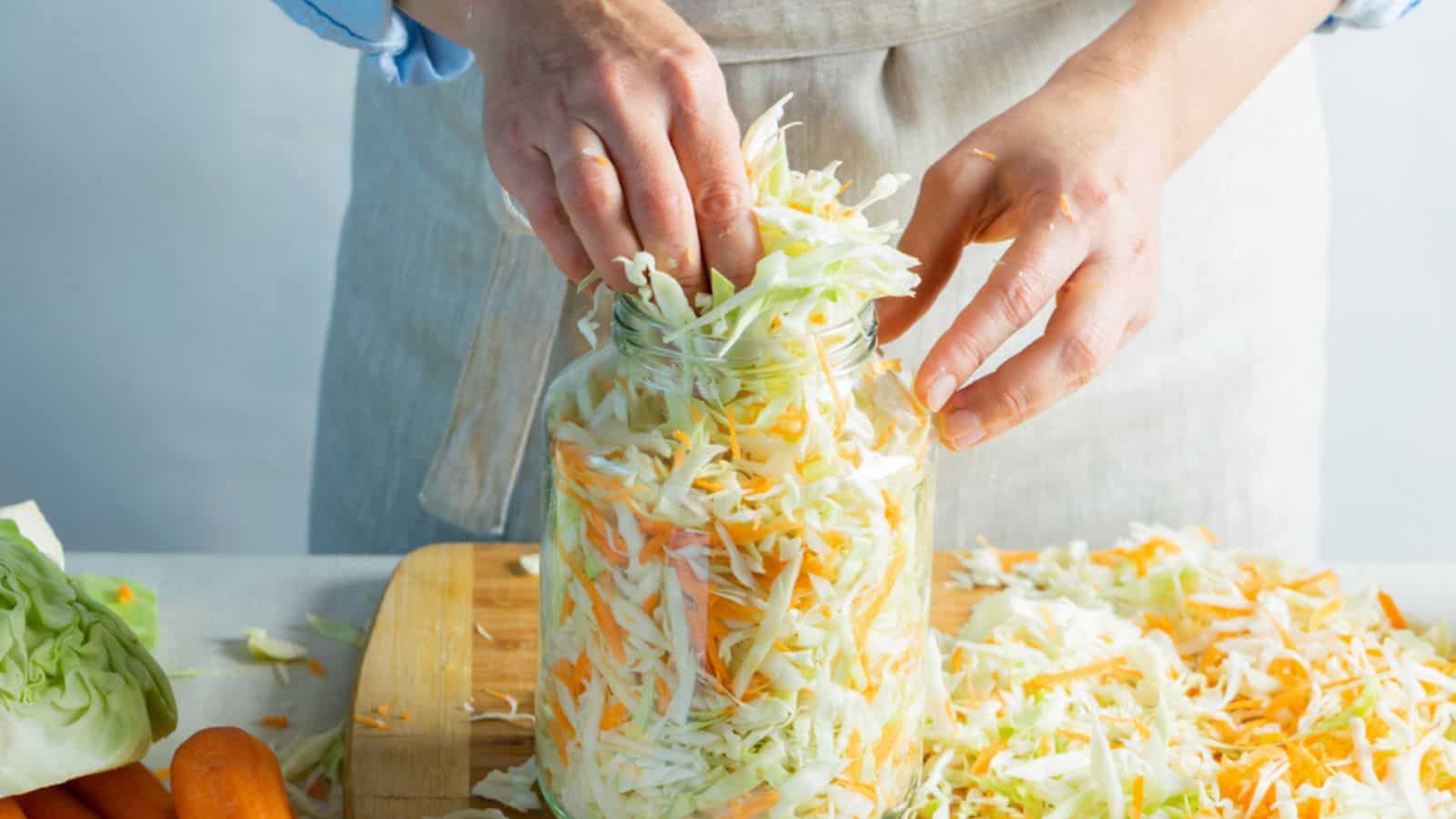
Sauerkraut is finely cut cabbage that has been fermented by various lactic acid bacteria. It’s a traditional food in many cultures and offers a wealth of health benefits, particularly for the gut. The fermentation process ‘predigests’ the vegetable and produces beneficial probiotics that improve gut health. Sauerkraut is rich in fibers, vitamins C and K, and iron. It’s a great condiment to eat on its own, or it can also be enjoyed as a side dish.
Kimchi
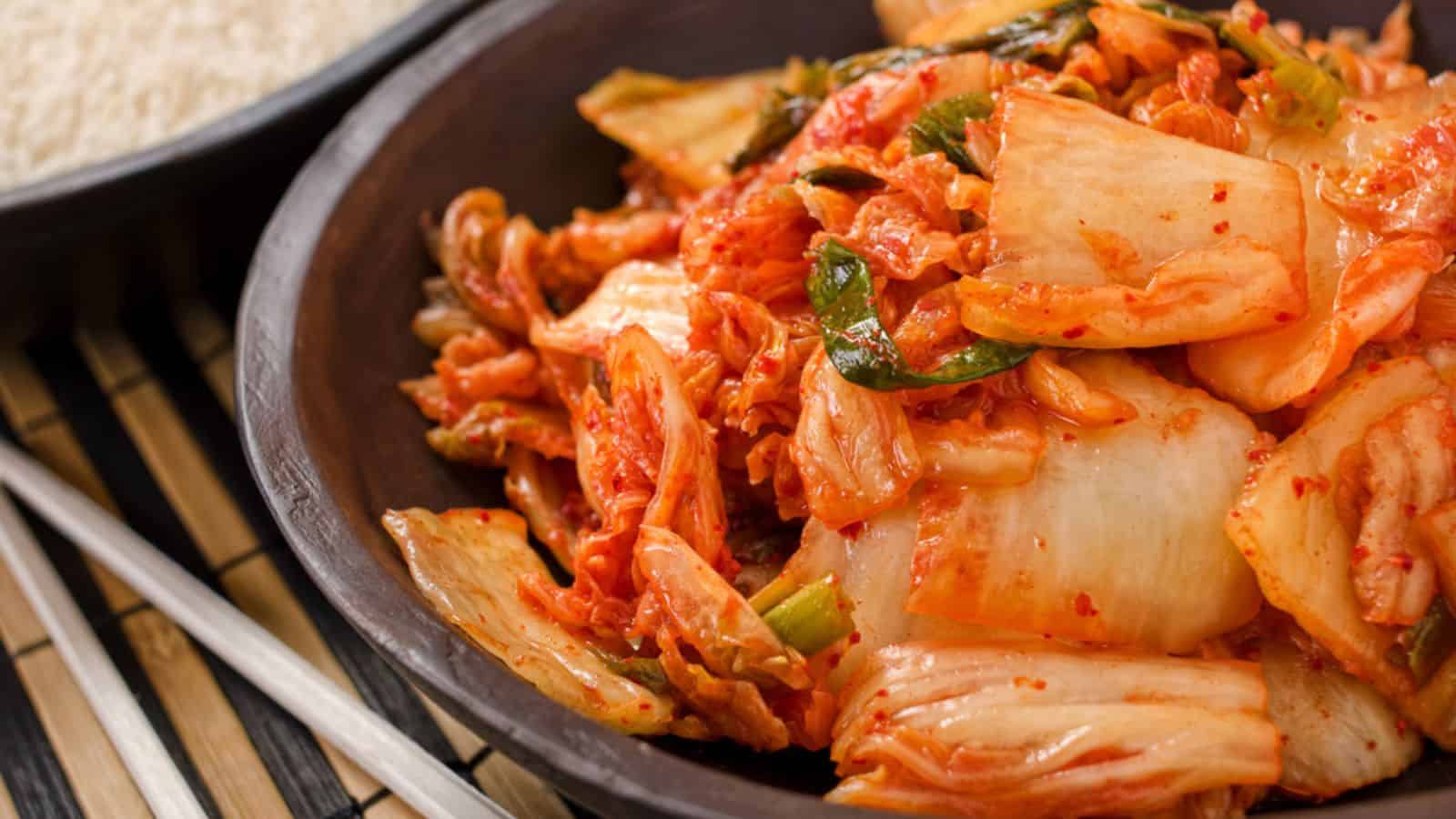
Kimchi is a spicy, fermented side dish often made from cabbage, radishes, and other vegetables mixed with chili paste and other seasonings. Originating from Korea, it’s not only a cultural staple but also a probiotic-rich food that supports the gut microbiome. The fermentation process creates strains of beneficial bacteria that help in maintaining a balanced gut flora, which can contribute to better digestion and immune function. Kimchi is also packed with vitamins A and C, and antioxidants. It’s often served alongside rice dishes or incorporated into recipes like stews and fried rice.
Miso
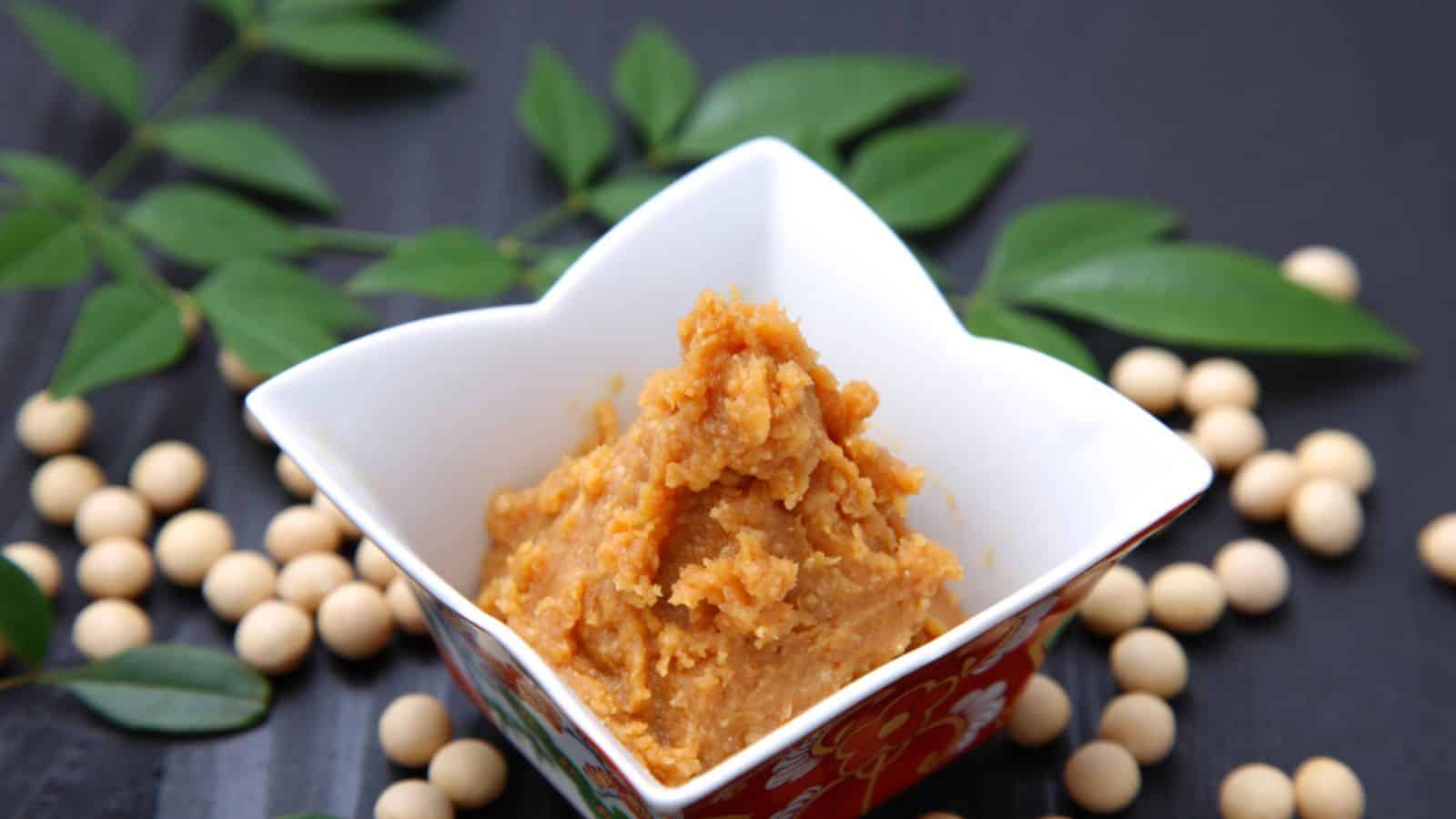
Miso is a traditional Japanese seasoning produced by fermenting soybeans with salt and koji (a type of fungus). It is a rich source of probiotics, and is also packed with protein, vitamins, and minerals, making it a nutrient-dense choice for gut health. It has been linked to various health benefits, including a reduced risk of stroke and improved digestion. Miso paste can be used to make a warming miso soup, added to marinades, dressings, and sauces to enhance flavor, or even incorporated into sweet dishes for a savory twist.
Tempeh
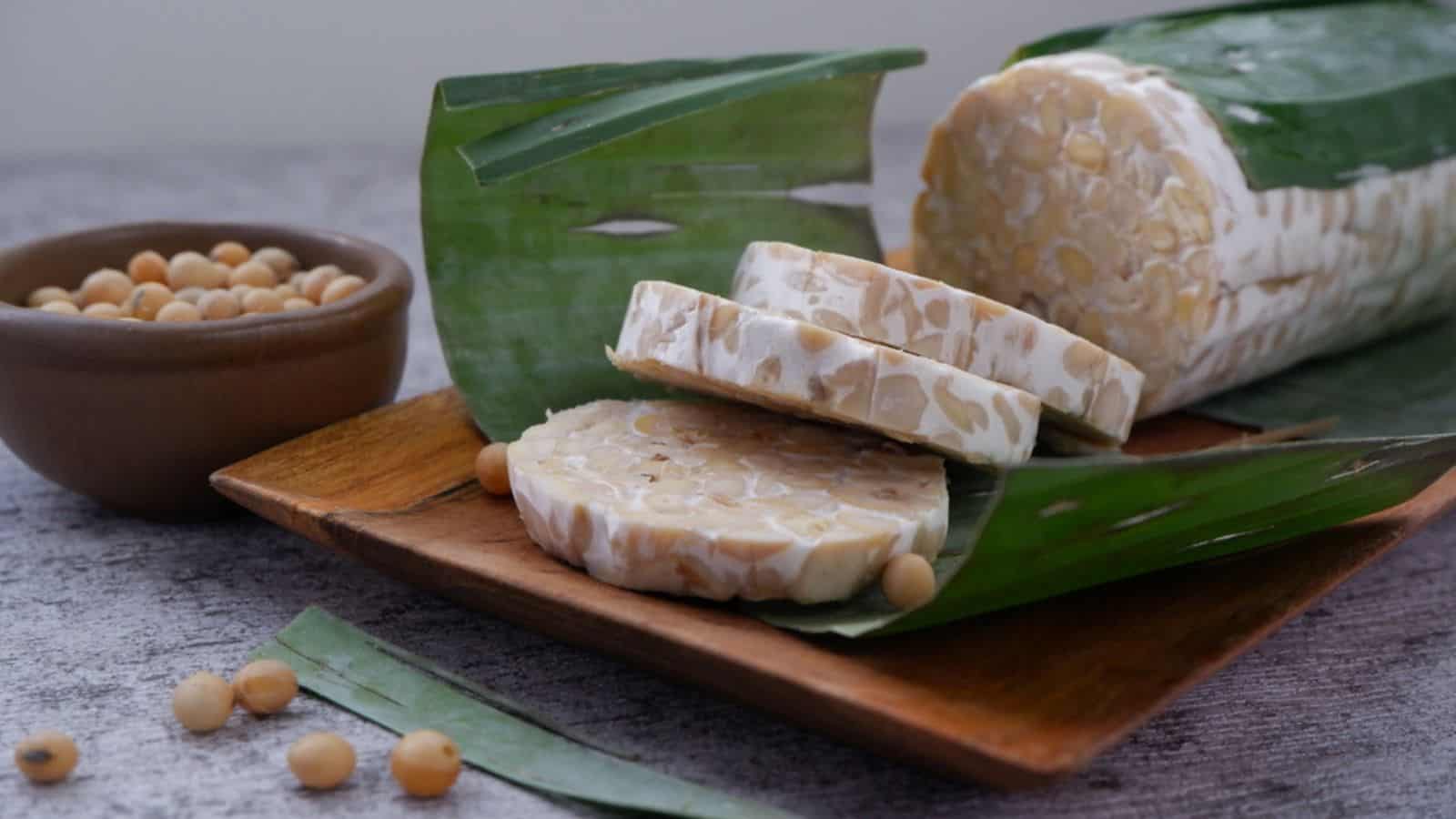
Tempeh is a fermented soy product that originates from Indonesia. It is first fermented, and then pressed into a small cake, similar to tofu. Tempeh is not only beneficial for gut health but is also a great source of protein, making it a popular meat substitute for vegetarians and vegans. It’s rich in various nutrients, including B vitamins, and is easy to incorporate into your meal plan as it can be sautéed, baked, or grilled. Tempeh’s firm texture and nutty flavor make it a satisfying addition to Asian dishes such as stir-fries, and salads.
Kombucha

Kombucha is a fermented tea that has gained popularity for its potential health benefits, especially for the digestive system. It’s made by adding specific strains of bacteria and yeast to sweet black or green tea, then allowing it to ferment for a week or more. This process creates a fizzy, slightly sour drink that has B vitamins and many other types of acids, including amino acids, as well as probiotics which can help to balance the gut microbiome. Kombucha also contains antioxidants and can have a detoxifying effect on the body.
Bananas
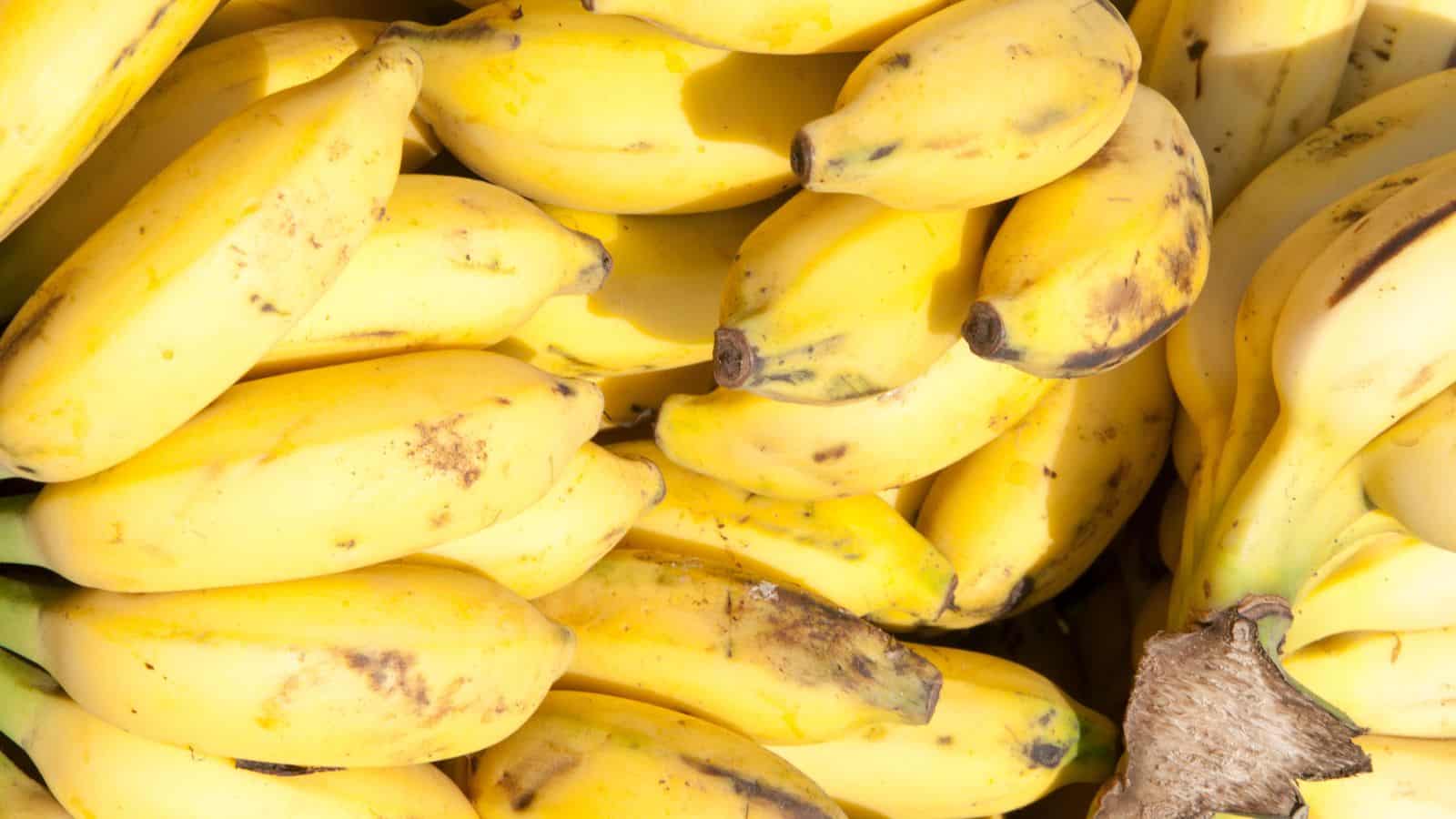
Bananas are one of the most accessible prebiotic that most people can consume year-round. They are an excellent source of dietary fiber, which makes it a great prebiotic (food for gut microbiome), and also helps to keep the digestive system running smoothly. The fiber in bananas can help to regulate bowel movements and alleviate constipation. Bananas are also packed with vitamins and minerals, including potassium, vitamin C, and vitamin B6. They contain inulin, a type of soluble fiber that acts as a prebiotic, feeding the beneficial bacteria in the gut.
Garlic
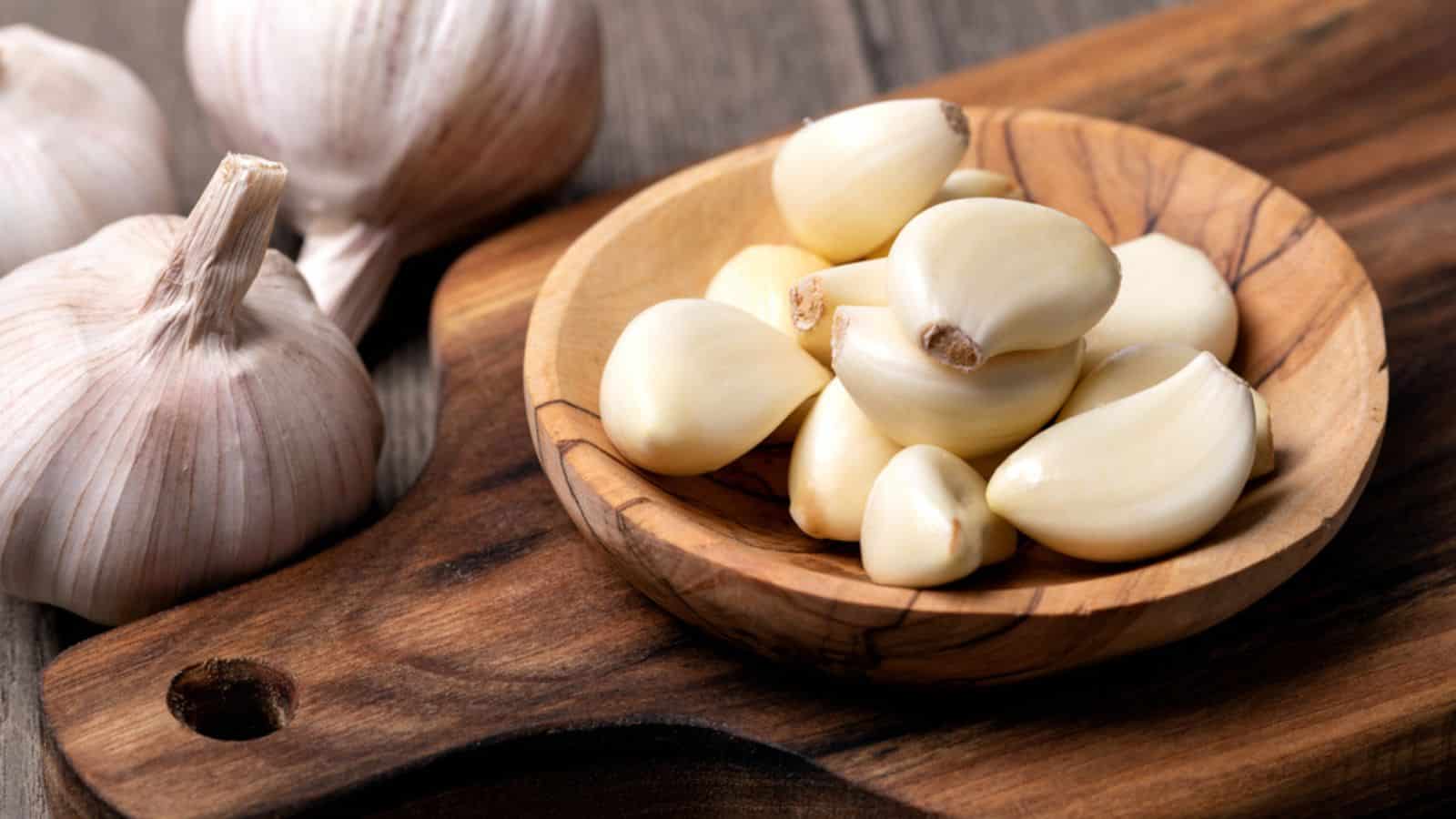
Garlic is renowned not only for its distinctive flavor but also for its health benefits, particularly for the gut. It has powerful antibacterial and antifungal properties, and acts as a prebiotic by promoting the growth of beneficial Bifidobacteria bacteria in the gut. It’s also believed to help prevent some gastrointestinal diseases and improve immune function.
Onions
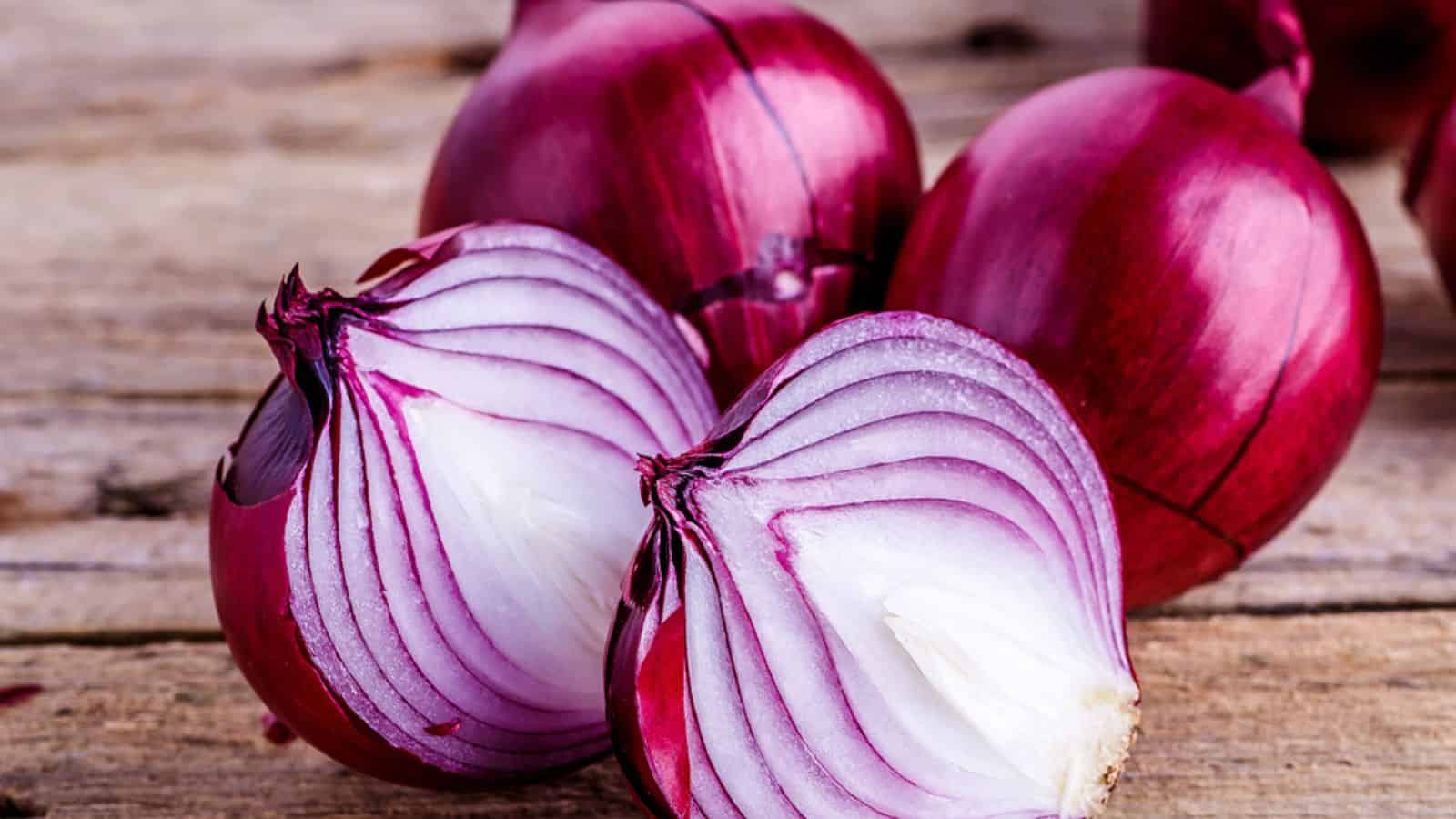
Onions are another excellent food for gut health, because it is a good source of inulin and flavonoids, which can reduce inflammation and support the growth of beneficial bacteria in the gut. Like garlic, onions are prebiotics, which serve as food for the gut microbiome, thereby enhancing the gut’s bacterial balance. They are also rich in quercetin, an antioxidant that may help reduce the risk of certain diseases like stomach ulcers.
Apples

Apples are a delicious and nutritious fruit that can have a positive impact on gut health. They are rich in pectin, a type of soluble fiber that acts as a prebiotic and encourages the growth of good bacteria in the gut. Pectin can also help regulate bowel movements and may reduce inflammation associated with certain gut disorders. Apples are also a good source of vitamin C and other antioxidants, which contribute to overall health. Eating apples with their skin on maximizes the fiber and nutrient intake.
Almonds
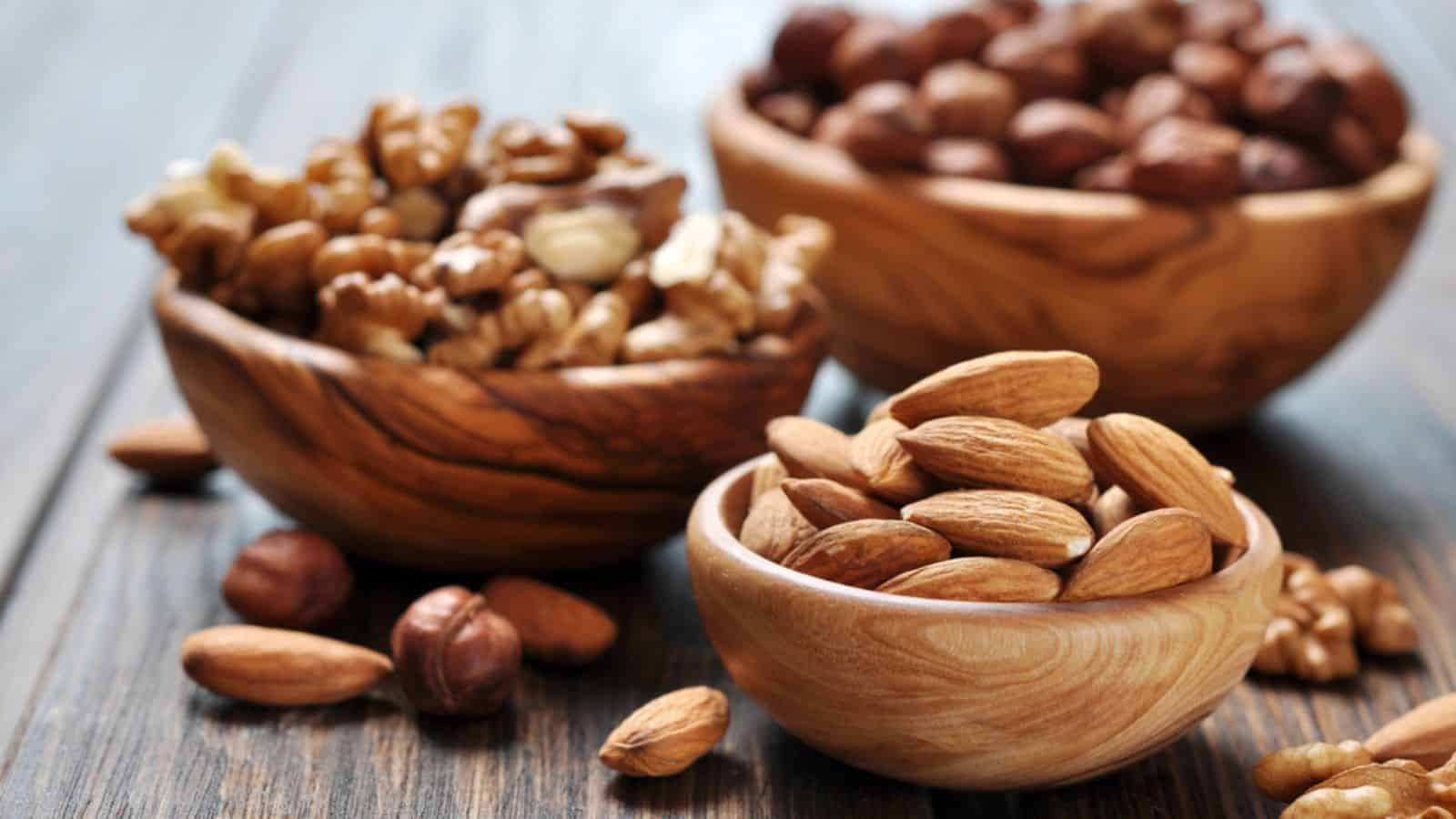
Almonds are are high in dietary fiber, which is beneficial for digestive health, and also contain healthy fats and protein. The skin of almonds is particularly rich in prebiotic compounds that help to support the growth of beneficial gut bacteria, contributing to a healthy gut flora. Almonds are also packed with vitamins and minerals, including vitamin E, magnesium, and calcium.
Olive Oil

Extra-virgin olive oil is a cornerstone of the Mediterranean diet and is known for its numerous health benefits, including its positive effects on gut health. Rich in monounsaturated fats and polyphenols, olive oil can help reduce inflammation in the gut and promote the growth of beneficial bacteria. Its antioxidant properties also contribute to the protection of the digestive tract and the overall health of the gut microbiome. Incorporating olive oil into your diet is easy: use it for salad dressings, drizzle it over cooked dishes or use it as your cooking oil. Regular consumption of olive oil can support nutrient absorption and may help in preventing gastrointestinal diseases.
Flaxseeds
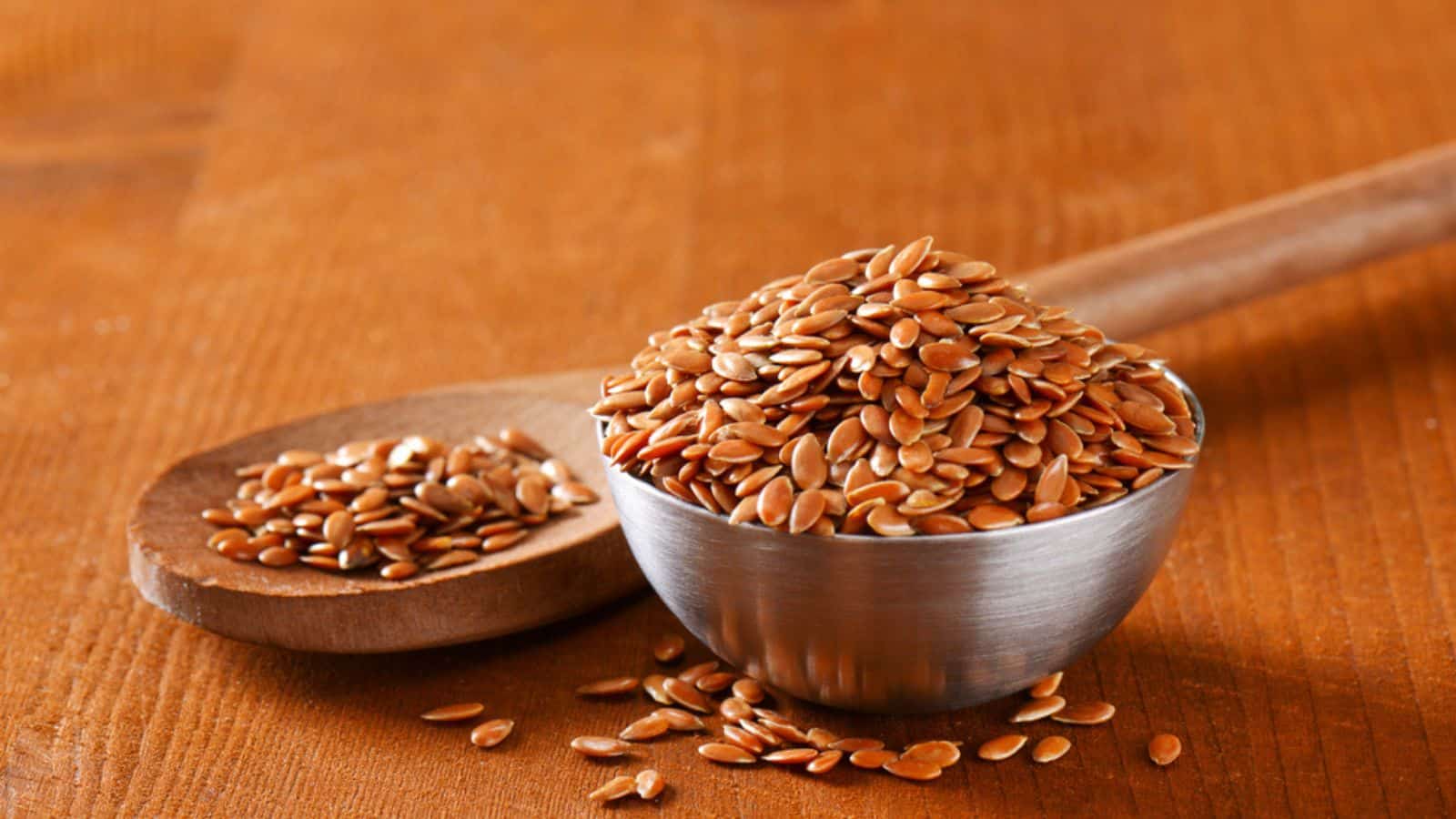
Flaxseeds are a powerful superfood for gut health, thanks to their high content of alpha-linolenic acid (ALA), a type of omega-3 fatty acid, and their rich fiber profile. The fiber in flaxseeds help to maintain regular bowel movements and can relieve constipation. Additionally, the soluble fiber acts as a prebiotic, feeding the good bacteria in the gut. Add ground flaxseed to smoothies, oatmeal, yogurt, or baked goods to easily incorporate it into your diet.
Chia Seeds
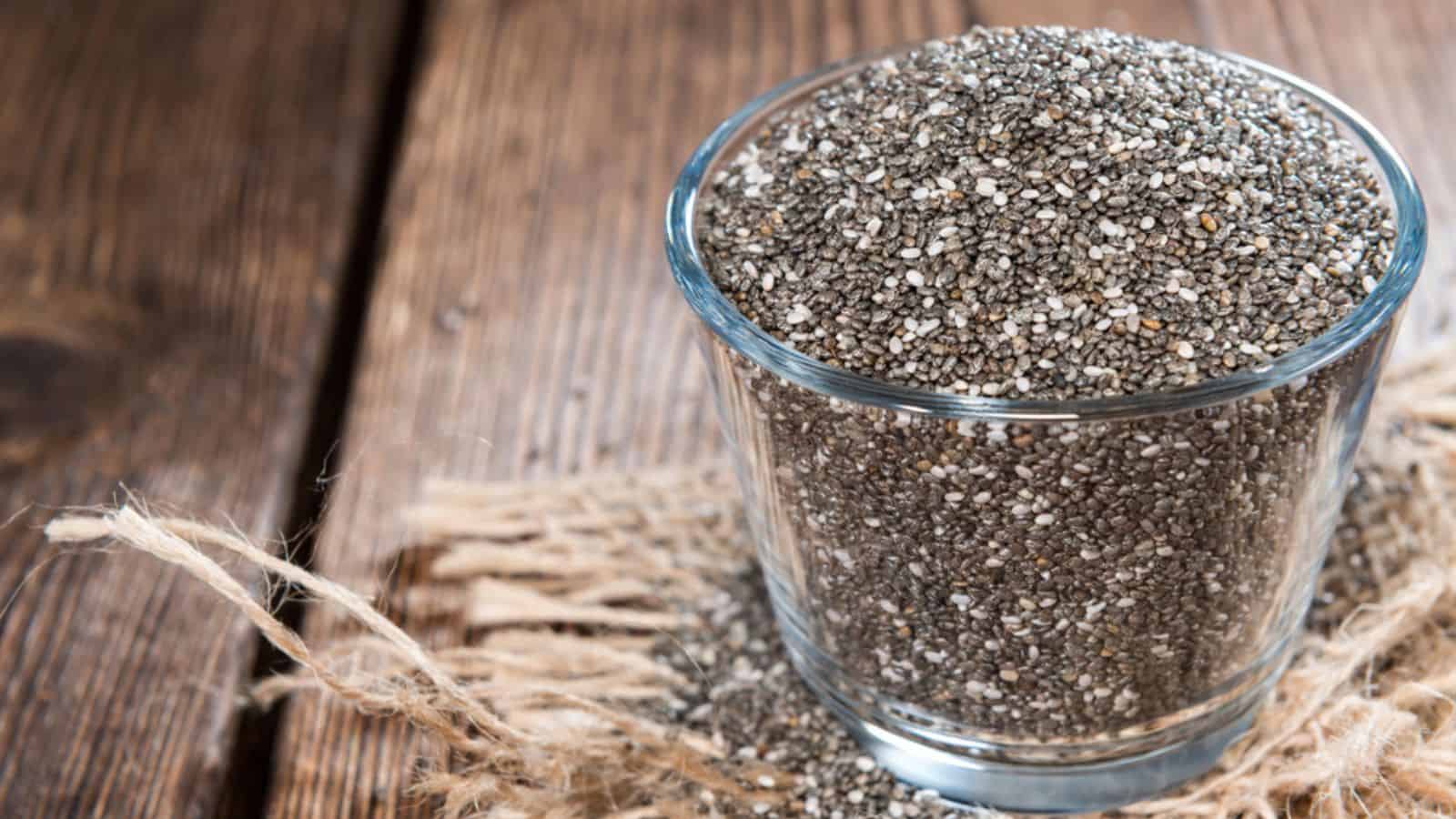
Chia seeds are tiny but mighty when it comes to their benefits for the digestive system. They are extremely high in fiber, which is essential for a healthy gut, promoting bowel regularity and preventing constipation. Chia seeds are loaded with omega-3 fatty acids, antioxidants, and minerals such as calcium and magnesium. They can be soaked in water or milk to make chia pudding, sprinkled on top of salads or yogurt, or blended into smoothies for a nutritious boost.
Beans and Legumes
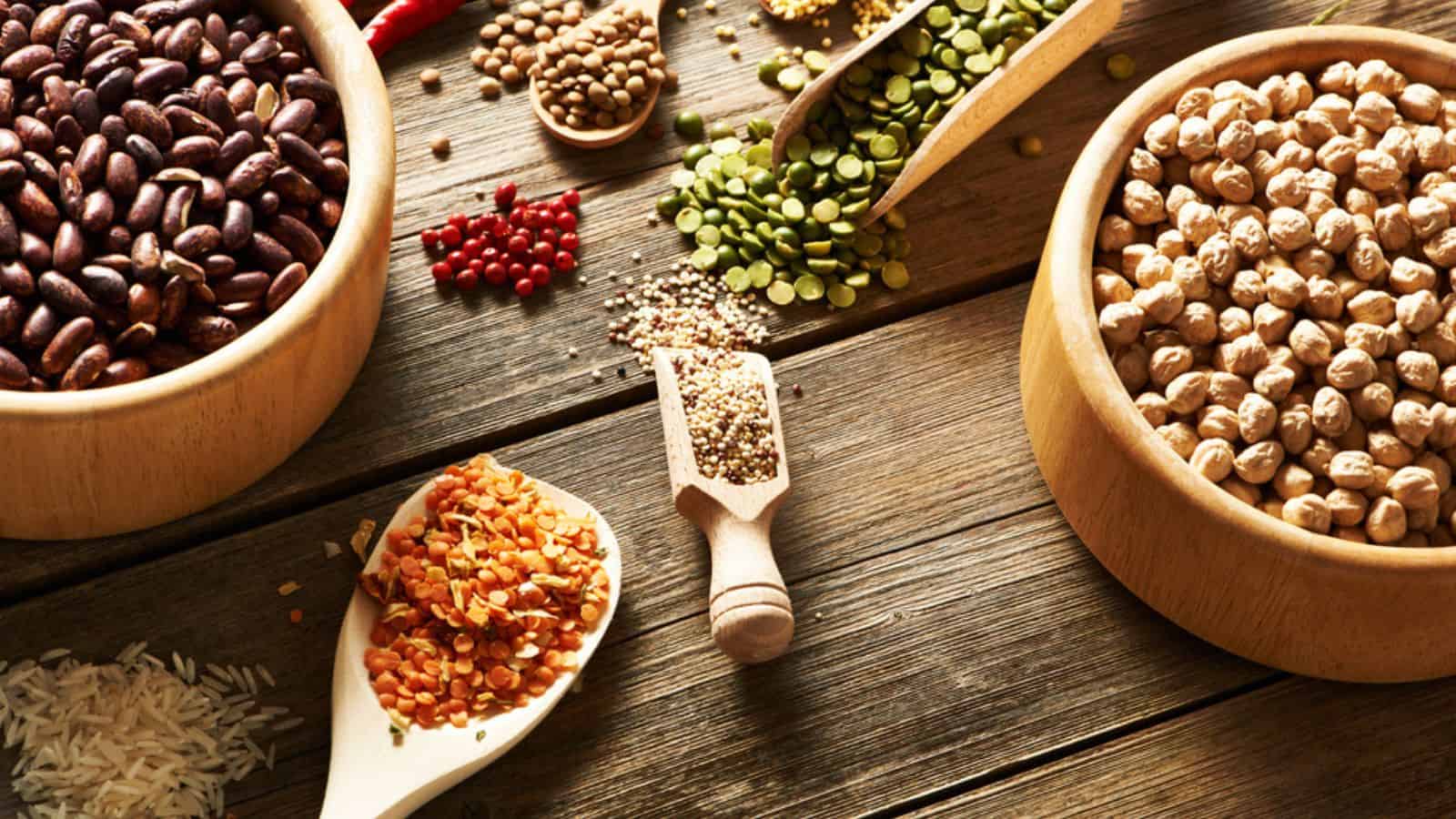
Beans and legumes, including lentils, and chickpeas are excellent foods for gut health. They are one of the best plant-based sources of fiber, which is crucial for a healthy digestive system. The fiber helps to promote regular bowel movements and can prevent digestive disorders. Beans and legumes also contain resistant starch, which is not digested in the small intestine but instead ferments in the large intestine, serving as food for beneficial gut bacteria. They are incredibly versatile in cooking, as they can be used in soups, stews, and salads.
Blueberries
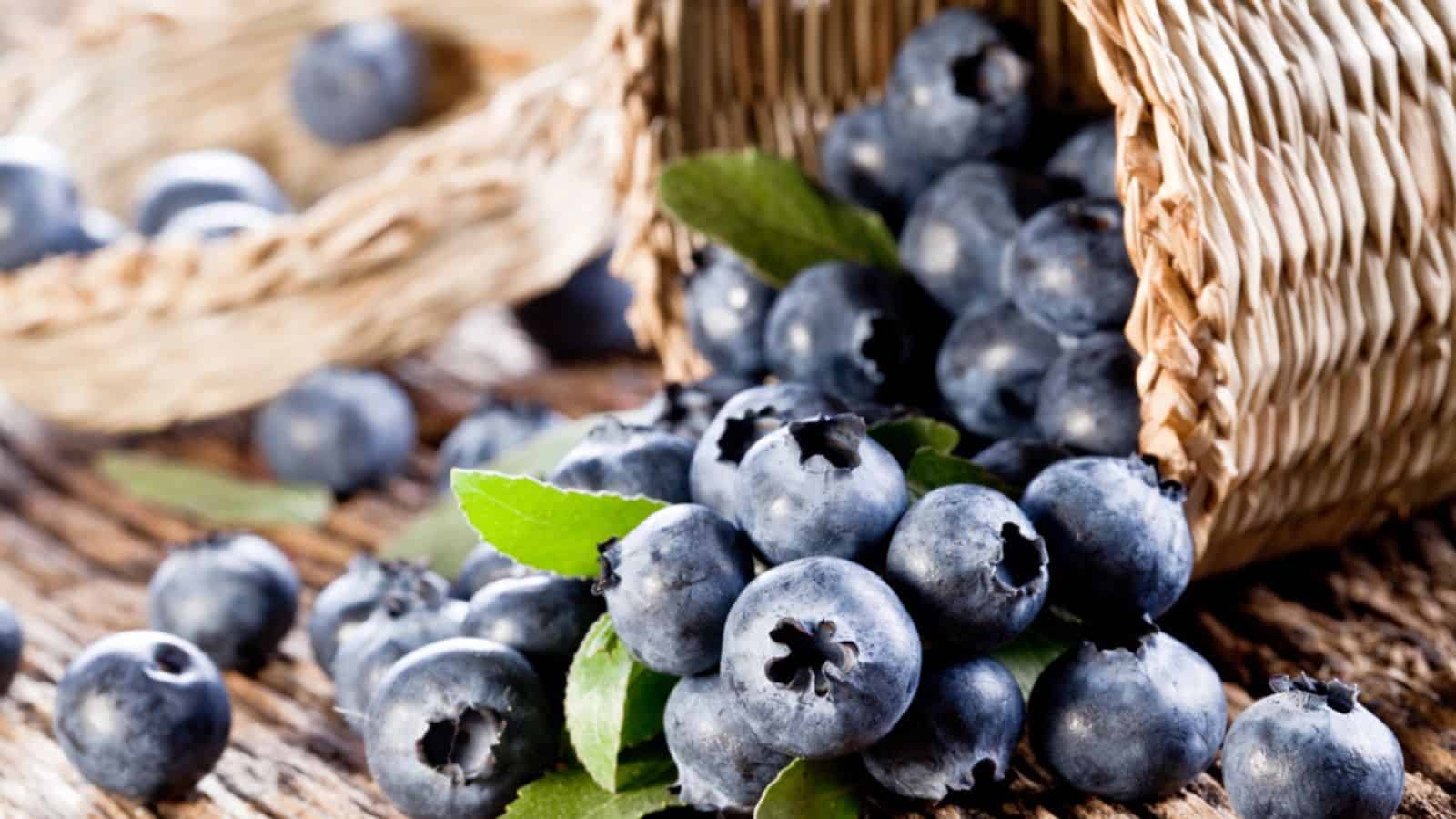
Blueberries are not only delicious but also incredibly beneficial for the gut. They contain anthocyanins, a type of flavonoids, which have been shown to be beneficial for the gut microbiota and can help reduce inflammation in the digestive tract. Blueberries are rich in vitamins C and K and provide a good amount of manganese, which is important for bone development and nutrient absorption.
More From Arnie Nicola: All About Jackfruit, The Tropical Superfood
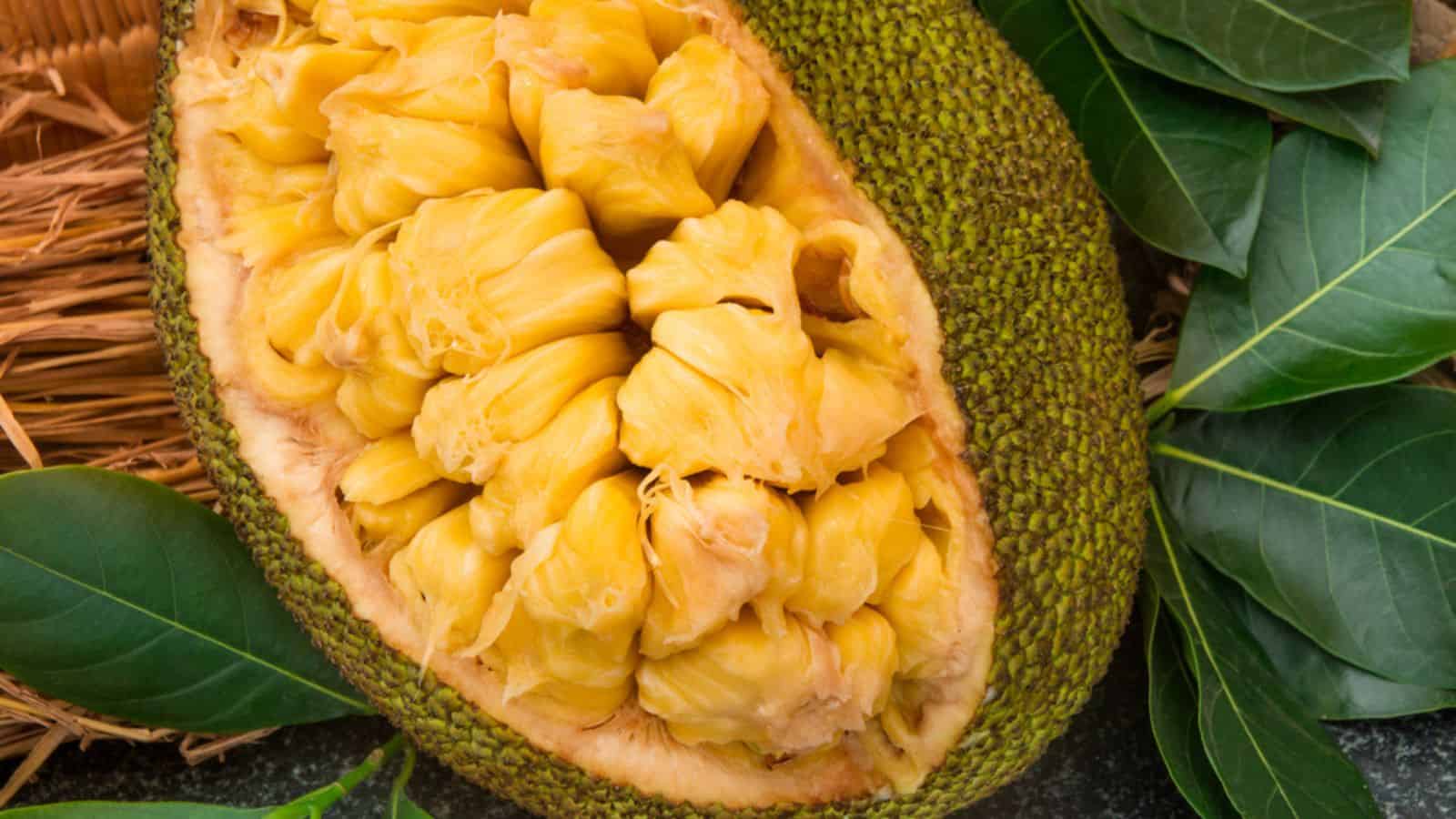
Are you looking for a new, versatile ingredient to add to your meals? Look no further than jackfruit! This tropical fruit has gained popularity in the food world due to its unique taste and impressive nutritional benefits.
Jackfruit: What You Need To Know About This Tropical Superfood
More From Arnie Nicola: 21 Money-Saving “Hacks” That Cost You More In The Long Run

With the downturn in the economy and many struggling to make ends meet, it’s easy to fall for various money saving hacks that promise to reduce cost and help increase savings. However, it’s important to remember that not all the money-saving ‘hacks’ help in the long run.






